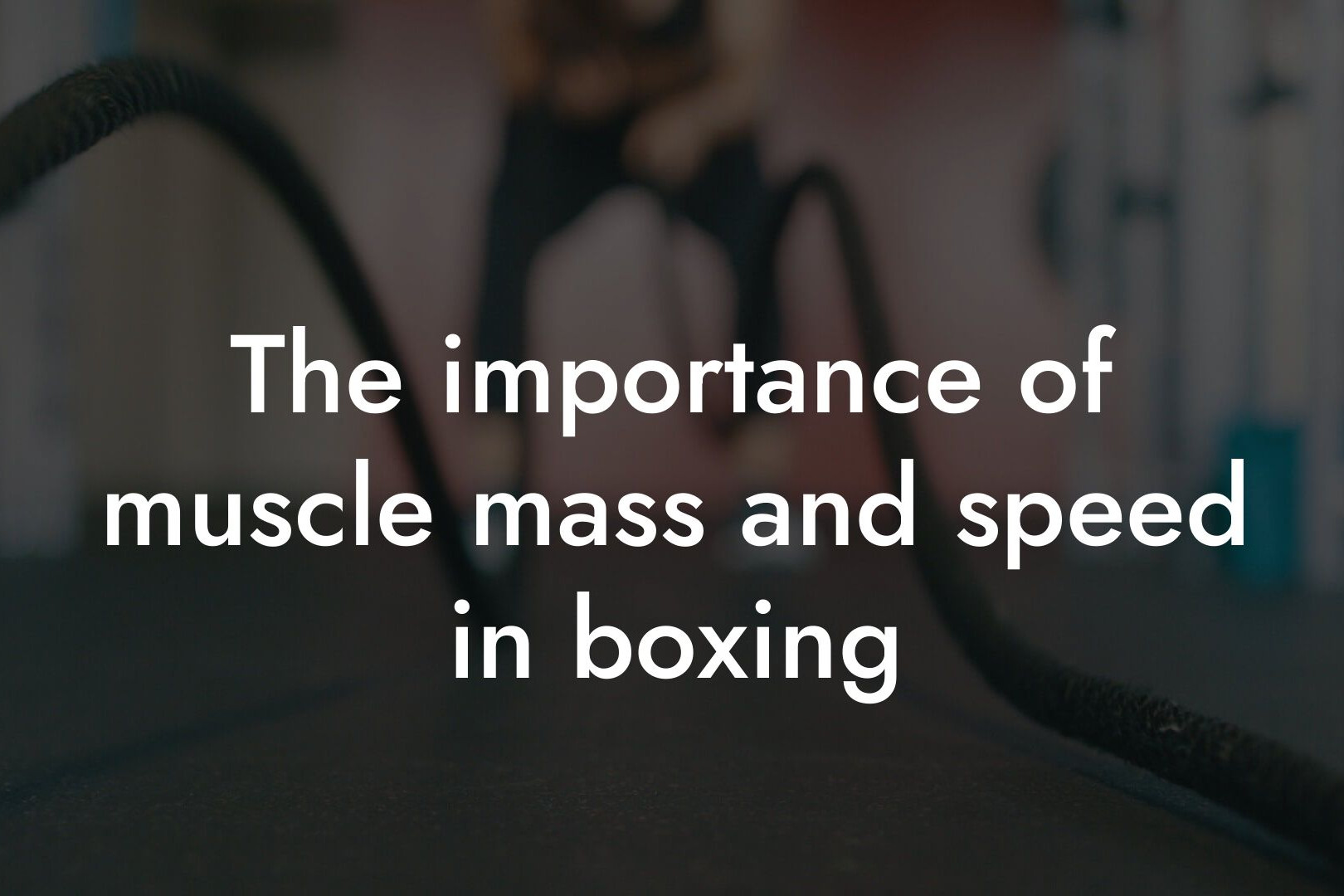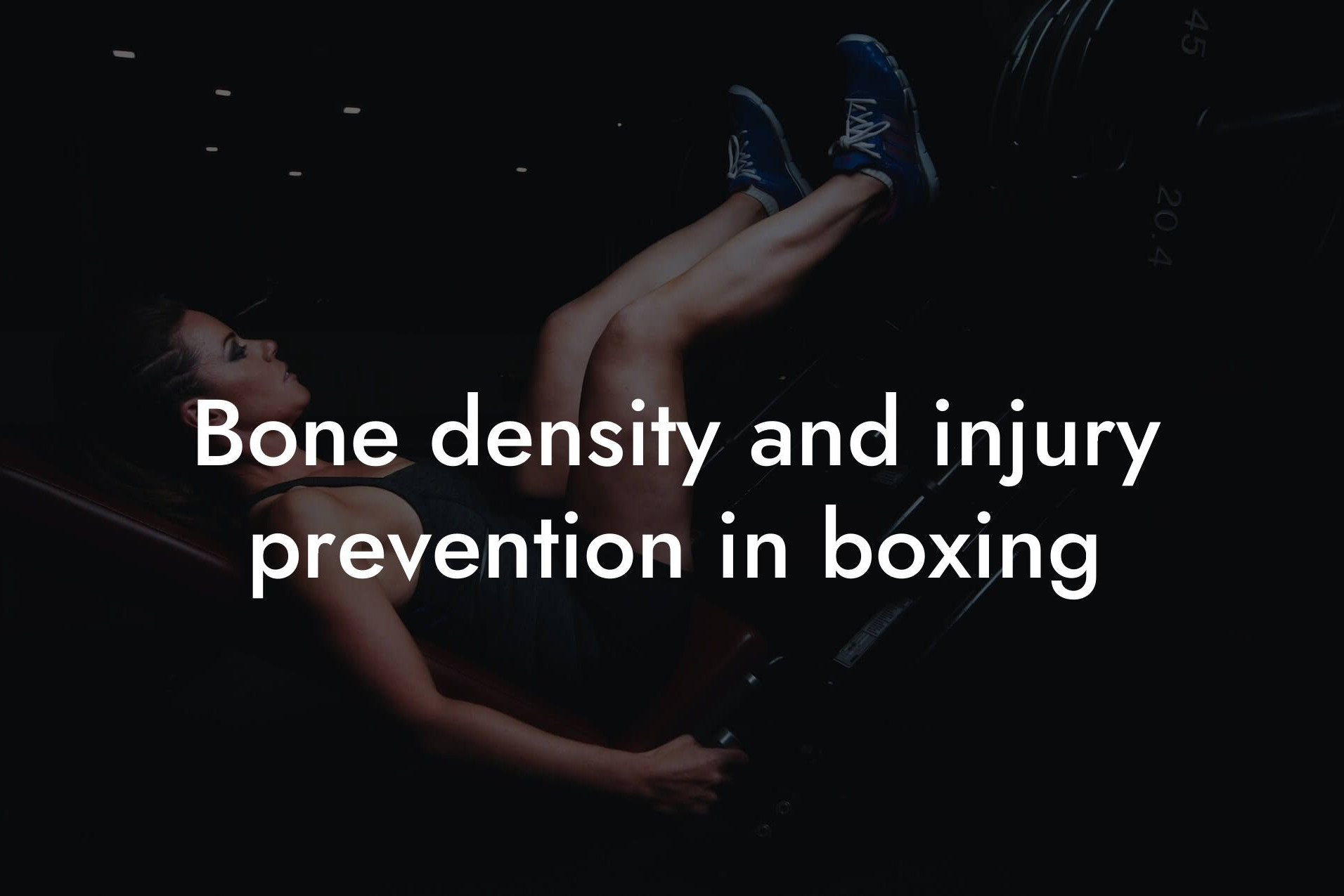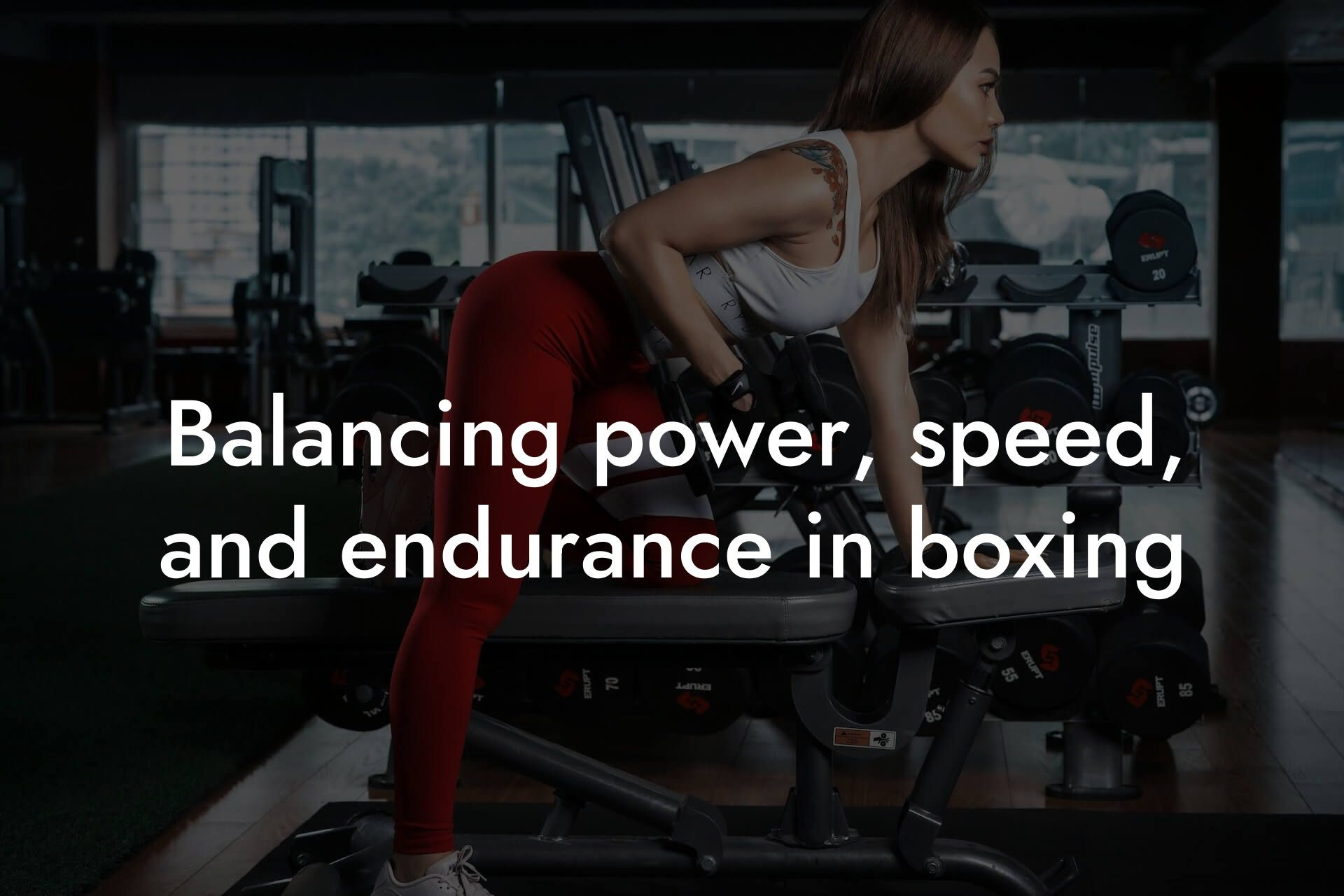What is a DEXA Scan?
A DEXA (Dual-Energy X-ray Absorptiometry) scan is a non-invasive, pain-free medical test that measures bone density, body composition, and lean mass. It is commonly used to diagnose osteoporosis, but its applications extend far beyond bone health. In the context of boxing training and weight management, DEXA scans provide valuable insights that can help athletes optimize their performance and achieve their physique goals.
Table of Contents
- What is a DEXA Scan?
- Why Do Boxers Need DEXA Scans?
- How Do DEXA Scans Benefit Boxers?
- How Often Should Boxers Get DEXA Scans?
- What Do DEXA Scan Results Mean for Boxers?
- How Do DEXA Scans Compare to Other Body Composition Measurement Tools?
- Getting Started with DEXA Scans at Tano Performance Group
- Frequently Asked Questions
Why Do Boxers Need DEXA Scans?
Boxing is a high-intensity sport that demands a unique combination of strength, speed, agility, and endurance. To excel in the ring, boxers need to maintain a lean, athletic physique while also ensuring they have sufficient muscle mass to generate power and withstand the physical demands of the sport. DEXA scans help boxers achieve this delicate balance by providing detailed information about their body composition, including:
- Bone density: essential for preventing injuries and maintaining overall health
- Lean mass: crucial for generating power and speed
- Body fat percentage: vital for achieving an optimal weight class and improving overall performance
- Visceral fat: a key indicator of metabolic health and inflammation
How Do DEXA Scans Benefit Boxers?
By providing a comprehensive picture of their body composition, DEXA scans offer numerous benefits to boxers, including:
- Personalized training and nutrition plans: with accurate data on their body composition, boxers can tailor their training and nutrition strategies to optimize their performance and physique
- Injury prevention: by identifying areas of low bone density, boxers can take proactive steps to prevent injuries and maintain their overall health
- Weight management: DEXA scans help boxers achieve and maintain their optimal weight class, ensuring they are competitive and performing at their best
- Improved recovery: by monitoring changes in body composition, boxers can optimize their recovery strategies and return to training faster and stronger
How Often Should Boxers Get DEXA Scans?
The frequency of DEXA scans for boxers depends on their individual goals and training cycles. As a general rule, it is recommended to undergo a DEXA scan:
- At the beginning of a new training cycle to establish a baseline
- Every 6-12 weeks to monitor progress and adjust training and nutrition plans as needed
- Before a major competition to ensure optimal body composition and performance
What Do DEXA Scan Results Mean for Boxers?
DEXA scan results provide a wealth of information that can be used to inform training and nutrition decisions. Some key metrics to focus on include:
- Bone density T-score: a measure of bone density compared to a healthy adult of the same age and sex
- Lean mass percentage: the proportion of lean tissue to total body mass
- Body fat percentage: the proportion of fat mass to total body mass
- Visceral fat area: a measure of fat around the organs in the abdominal cavity
How Do DEXA Scans Compare to Other Body Composition Measurement Tools?
DEXA scans are widely considered the gold standard for body composition measurement due to their high accuracy and precision. Compared to other methods, such as:
- Hydrostatic weighing: DEXA scans are more convenient and less invasive
- Skinfold measurements: DEXA scans provide a more comprehensive picture of body composition
- Bioelectrical impedance analysis (BIA): DEXA scans are more accurate and reliable
In conclusion, DEXA scans play a critical role in boxing training and weight management. By providing detailed information about body composition, DEXA scans help boxers optimize their performance, prevent injuries, and achieve their physique goals. As a valuable tool in the pursuit of athletic excellence, DEXA scans are an essential component of any serious boxer's training regimen.
Getting Started with DEXA Scans at Tano Performance Group
If you're a boxer looking to take your training to the next level, consider partnering with Tano Performance Group. Our state-of-the-art DEXA machine and team of experts provide comprehensive body assessments and personalized guidance to help you achieve your goals. Contact us today to learn more and schedule your appointment.
Frequently Asked Questions
What is a DEXA scan and how does it work?
A DEXA (Dual-Energy X-ray Absorptiometry) scan is a non-invasive medical test that measures bone density, body composition, and fat mass. It uses X-rays to produce an image of the body's internal structure, allowing for accurate calculations of bone density, lean mass, and fat mass. This information is essential for boxers, as it helps them optimize their training and weight management strategies.
Why are DEXA scans important for boxers?
DEXA scans provide valuable insights into a boxer's body composition, which is critical for optimal performance. By measuring bone density, lean mass, and fat mass, boxers can identify areas for improvement, track changes over time, and make data-driven decisions about their training and nutrition. This information can help boxers optimize their weight class, improve their power-to-weight ratio, and reduce the risk of injury.
How does a DEXA scan differ from other body composition tests?
DEXA scans are more accurate and comprehensive than other body composition tests, such as skinfold measurements or bioelectrical impedance analysis (BIA). DEXA scans provide a detailed breakdown of body composition, including bone density, lean mass, and fat mass, whereas other tests may only provide a rough estimate of body fat percentage. Additionally, DEXA scans are non-invasive and do not require any physical contact or discomfort.
What are the benefits of using DEXA scans in boxing training?
The benefits of using DEXA scans in boxing training include improved performance, enhanced recovery, and reduced risk of injury. By tracking changes in body composition, boxers can optimize their training programs, adjust their nutrition plans, and make informed decisions about their weight class. DEXA scans can also help boxers identify potential health risks, such as low bone density, and take proactive steps to address them.
How often should boxers get a DEXA scan?
The frequency of DEXA scans depends on individual goals and needs. For boxers, it's recommended to get a DEXA scan every 6-12 weeks to track changes in body composition and adjust training and nutrition plans accordingly. However, if a boxer is experiencing significant changes in their body or is recovering from an injury, more frequent scans may be necessary.
What is the ideal body composition for a boxer?
The ideal body composition for a boxer varies depending on their weight class, fighting style, and individual goals. Generally, boxers aim to maintain a high percentage of lean mass and a low percentage of body fat. A typical body composition goal for a boxer might be 10-15% body fat, with a high percentage of lean mass and strong bone density.
How does DEXA scan data help with weight management?
DEXA scan data provides valuable insights into a boxer's body composition, allowing them to make informed decisions about their weight management strategy. By tracking changes in lean mass, fat mass, and bone density, boxers can adjust their nutrition and training plans to achieve their desired weight class. DEXA scan data can also help boxers identify areas for improvement, such as increasing their lean mass or reducing their body fat percentage.
Can DEXA scans help with injury prevention?
Yes, DEXA scans can help with injury prevention by identifying potential health risks, such as low bone density or muscle imbalances. By addressing these issues proactively, boxers can reduce their risk of injury and maintain optimal performance. Additionally, DEXA scans can help boxers track changes in their body composition over time, allowing them to make adjustments to their training and nutrition plans to reduce the risk of overtraining or burnout.
How does DEXA scan data inform training programs?
DEXA scan data provides valuable insights into a boxer's strengths, weaknesses, and areas for improvement. By analyzing this data, trainers and coaches can develop targeted training programs that address specific needs, such as increasing lean mass, improving bone density, or reducing body fat percentage. This data-driven approach can help boxers optimize their performance and achieve their goals more efficiently.
What is the role of nutrition in DEXA scan data?
Nutrition plays a critical role in DEXA scan data, as it can significantly impact body composition. A well-designed nutrition plan can help boxers optimize their lean mass, reduce their body fat percentage, and maintain strong bone density. By analyzing DEXA scan data, nutritionists and trainers can develop personalized nutrition plans that support a boxer's training goals and optimize their performance.
Can DEXA scans help with recovery?
Yes, DEXA scans can help with recovery by providing valuable insights into a boxer's body composition and identifying areas for improvement. By tracking changes in lean mass, fat mass, and bone density, boxers can optimize their recovery strategies and reduce the risk of overtraining or burnout. Additionally, DEXA scans can help boxers identify potential health risks, such as low bone density, and take proactive steps to address them.
How does DEXA scan data impact mental preparation?
DEXA scan data can have a significant impact on mental preparation, as it provides boxers with a sense of control and confidence. By tracking changes in their body composition and optimizing their training and nutrition plans, boxers can feel more confident and prepared for competition. This confidence can translate to improved mental toughness and resilience, allowing boxers to perform at their best even under pressure.
What are the limitations of DEXA scans?
While DEXA scans are highly accurate and informative, they do have some limitations. For example, DEXA scans may not be suitable for individuals with metal implants or pacemakers, and they may not provide accurate results for individuals with a high percentage of body fat. Additionally, DEXA scans are only a snapshot of a boxer's body composition at a particular point in time, and may not reflect changes that occur over time.
How does Tano Performance Group use DEXA scans?
Tano Performance Group uses DEXA scans as a valuable tool for optimizing performance and improving body composition. Our team of experts analyzes DEXA scan data to develop personalized training and nutrition plans that support our clients' goals and needs. We believe that DEXA scans are an essential component of any comprehensive training program, and we recommend them to all our clients.
What is the cost of a DEXA scan?
The cost of a DEXA scan varies depending on the location, provider, and individual needs. On average, a DEXA scan can cost anywhere from $50 to $200. However, at Tano Performance Group, we offer DEXA scans as part of our comprehensive training programs, and we believe that the benefits far outweigh the cost.
How long does a DEXA scan take?
A DEXA scan typically takes around 10-15 minutes to complete. During this time, you will lie on a table while the machine takes X-ray images of your body. The entire process is non-invasive and pain-free.
Is a DEXA scan safe?
Yes, DEXA scans are safe and non-invasive. They use a low-level X-ray beam to produce images of the body, and the radiation exposure is very low. In fact, the radiation exposure from a DEXA scan is equivalent to a few days of natural background radiation.
Can I get a DEXA scan if I'm not a boxer?
Absolutely! DEXA scans are not just for boxers. Anyone interested in optimizing their body composition, improving their performance, or reducing their risk of injury can benefit from a DEXA scan. At Tano Performance Group, we offer DEXA scans to anyone looking to take their fitness and performance to the next level.
How do I prepare for a DEXA scan?
To prepare for a DEXA scan, simply avoid eating for 2-3 hours beforehand and wear loose, comfortable clothing. It's also a good idea to avoid wearing jewelry or metal objects that may interfere with the scan.
What happens after the DEXA scan?
After the DEXA scan, our team of experts will analyze the data and provide you with a detailed report outlining your body composition, including your bone density, lean mass, and fat mass. We will then use this information to develop a personalized training and nutrition plan tailored to your goals and needs.
Can I get a DEXA scan if I'm under 18?
In general, DEXA scans are not recommended for individuals under the age of 18, as their bones are still developing. However, in some cases, a DEXA scan may be necessary for young athletes or individuals with specific health concerns. It's best to consult with a healthcare professional or our team at Tano Performance Group to determine if a DEXA scan is appropriate for you.
Are DEXA scans covered by insurance?
In some cases, DEXA scans may be covered by insurance, depending on the provider and the individual's health needs. However, it's best to check with your insurance provider to determine if DEXA scans are covered under your plan.
Here are some related articles you might love...
- The importance of muscle mass and speed in boxing
- Bone density and injury prevention in boxing
- Balancing power, speed, and endurance in boxing
- Strength and conditioning programs for amateur boxers
- Reducing body fat for optimal weight class in boxing
- Nutrition tips for maintaining energy and muscle in boxing
- How body composition affects performance in boxing
- Off-season training for amateur boxers
- Recovery strategies for boxers after sparring sessions
Zak Faulkner
Zak Faulkner is a leading authority in the realm of physical health and body composition analysis, with over 15 years of experience helping professionals optimise their fitness and well-being. As one the experts behind Tano Performance Group, Zak has dedicated his career to providing in-depth, science-backed insights that empower clients to elevate their physical performance and overall health.
With extensive knowledge of DEXA technology, Zak specializes in delivering comprehensive body assessments that offer precise data on body fat, muscle mass, bone density, and overall physique. His expertise enables individuals to make informed decisions and achieve their fitness goals with accuracy and confidence. Zak’s approach is rooted in a deep understanding of human physiology, combined with a passion for helping clients unlock their full potential through personalised strategies.
Over the years, Zak has earned a reputation for his commitment to excellence, precision, and client-focused service. His guidance is trusted by top professionals who demand the best when it comes to their health. Whether advising on fitness programs, nutritional strategies, or long-term wellness plans, Zak Faulkner’s insights are a valuable resource for anyone serious about taking their health and fitness to the next level.
At Tano Performance Group, Zak continues to lead our Content Team revolutionising how professionals approach their physical health, offering unparalleled expertise that drives real results.




